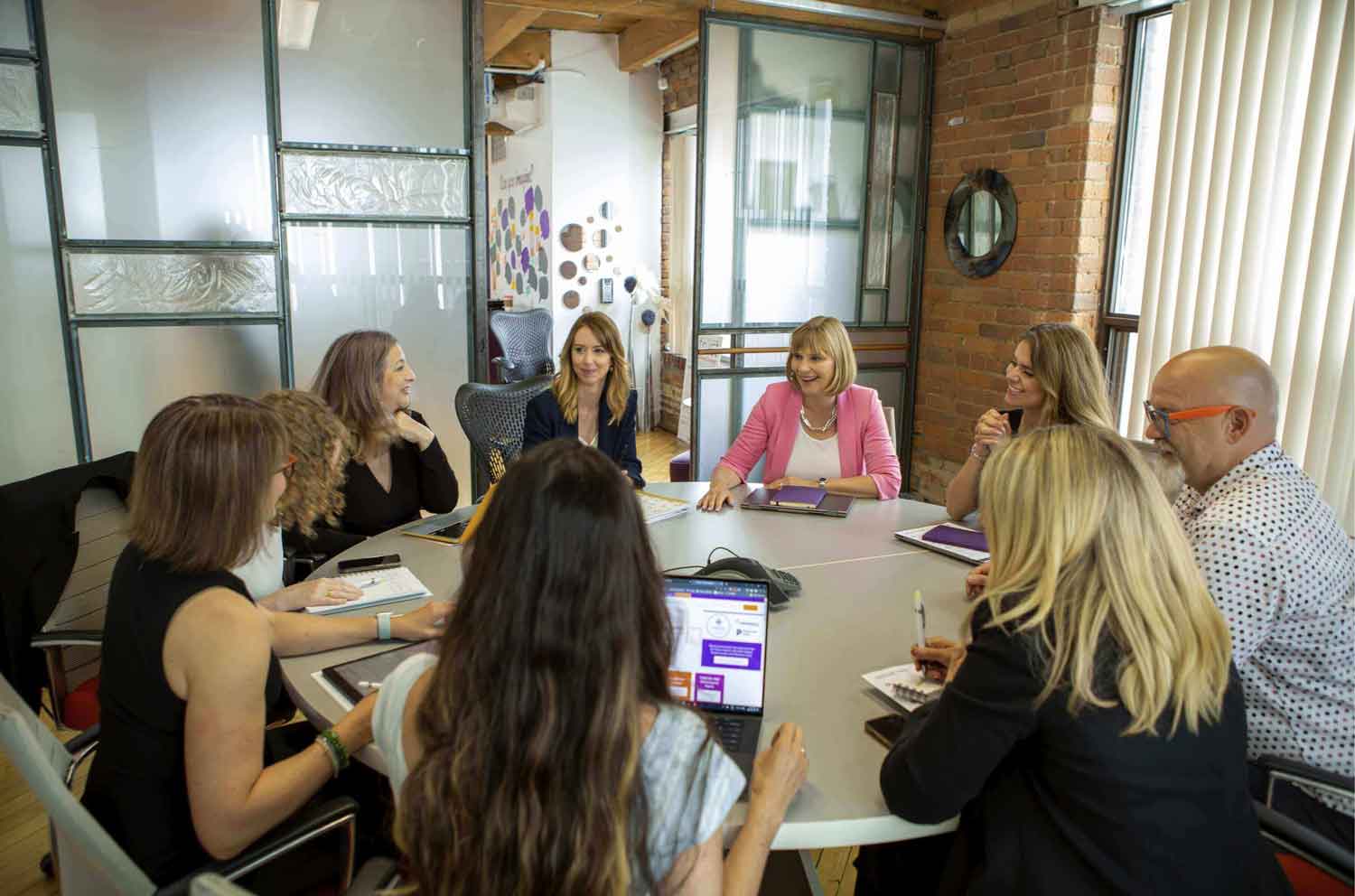The pandemic and its new hybrid work model have irrevocably altered the way we work. Over the last two years, I’ve noticed that companies that have had group mentorship programs seem to have come through everything with a lot more ease. In fact, the companies we work with here at The Roundtable have been able to adjust to the transition of working from home, and all of the challenges that come along with people working remotely, more smoothly and more quickly.
Unlike 1-to-1 mentoring, group mentoring – where senior leaders work with a group of 3-5 mentees – cultivates a broader sense of community, while building critical knowledge, skills and behaviours. Like in more traditional 1-to-1 mentoring approaches, the learning and development flows both ways between the mentor and their mentees but the exponential benefits are the mindsets, culture and collaboration that are cultivated as part of the group experience. In short, it raises the waterline of leadership across the organization.
The New Normal is the Same Old Normal
Even though there’s been a ton of talk about the impact of COVID on our workplaces, there are several themes that are not new and have been swirling around organizations for years.
- Complexity: First, we’re in an age of complexity, and there’s so much data, which is great, but it can also be really overwhelming. It’s hard to keep up. The reality is that leaders need to have deep subject matter expertise but they also need to know who else has the right expertise they need to get questions answered faster and problems solved more efficiently. That’s why you hear the word “collaboration” being bandied about so much these days.
- Uncertainty: A global pandemic, economic uncertainty, social justice movements and more have created additional complexity in an already complex world of work. Organizations need to continue to be agile and innovative in order to deal with the ongoing pace of change and ambiguity that comes with it.
- Isolation: For many years work has become more and more transactional and zoom calls, remote work and social distancing have simply heightened the loneliness and isolation many were already feeling in the workplace.
From our vantage point, group mentoring can help address these three pain points in very clear ways:
Group Mentoring and Collaboration
Group mentoring raises the bar on knowledge transfer. It creates ‘learning hubs’ where mid-level managers get the skills they need to succeed as well as tapping into the experience-based knowledge and an understanding of the company culture under the guidance of a senior leader mentor. Both mentors and mentees learn together in meaningful collaboration. By leveraging cross-functional groups in group mentoring programs, “silo mentalities” are broken down and all participants broaden their understanding of the business and the talent available within the organization. Relationships built within the group mentoring experience benefit the individuals, the teams and the organization as a whole.
Group Mentoring and Agility
At its best, any mentoring program is a process of connecting the head, heart and hands. In a carefully structured group program, mentees learn the “how-tos” of leadership, bonds are built throughout the organization, and both the mentors and the mentees gain insights that they can put into practice the next day with their own teams creating broader learning ripples in the system. When you can bring people together to collectively share insights and knowledge, and problem-solve together, you create an environment where groups and teams will naturally be more agile.
Group Mentoring and Community
Prior to Covid-19, there was talk about burnout, as leaders and organizations emphasized productivity and outputs. The pandemic amplified mental health and burnout thousandfold. We need people and community more than ever. Group mentoring has connection baked right into it. And, as we hear more and more about “the employee experience,” and the need for happy, resilient leaders, there’s no doubt in my mind that group mentoring is the answer. It’s built on developing strong mentors and mentorship programs, which allows organizations the ability to give their people something exceptional and irreplaceable—a sense of belonging, a clear career path, personalized development and relationships that can last a career lifetime.
If you’re curious about how The Roundtable can help your organization develop a culture where leaders can support each other through group coaching and mentoring, let’s start a conversation. And, be sure to download our 2022 L&D Trends Report for more insights into the issues affecting L&D professionals in the year ahead.




